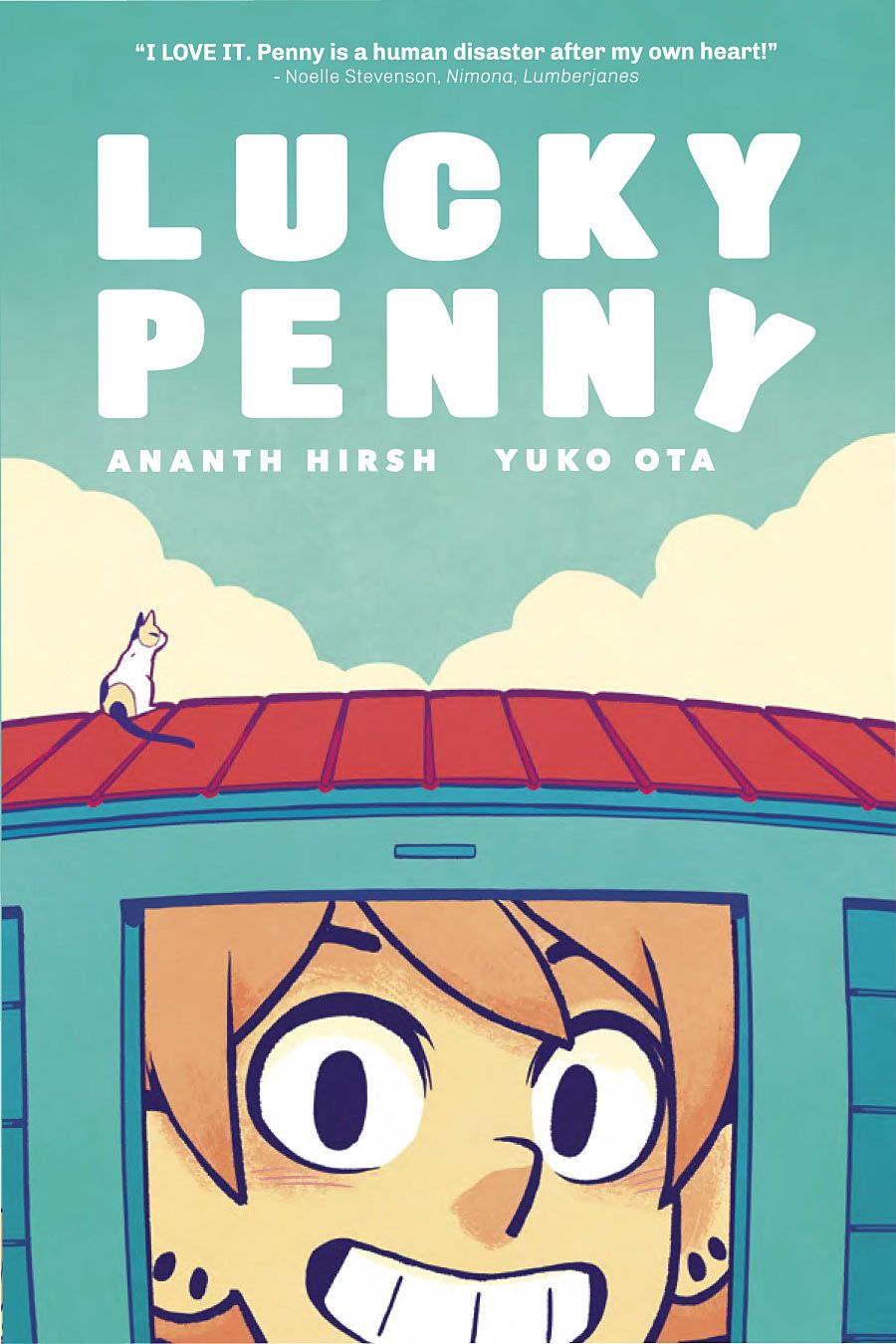"Lucky Penny" collects a story arc from "Johnny Wander," Ananth Hirsh and Yuko Ota's webcomic, into print. It follows the travails of Penny Brighton, who finds herself without a job or a home at the beginning of the story.
The first few scenes flesh Penny out through action and dialogue. Her best friend Helen is an excellent foil to Penny's impulsivity and knack for disaster, with Helen as the obvious grown-up in the relationship. While it's easy to see why she gets exasperated with Penny, Helen and her constant disapproval are a damper and an irritant. It's a relief when her sour face is out of the picture, leaving Penny to run free and fend for herself. The reader quickly gets invested in Penny's shenanigans and ridiculous behavior. Her good qualities, like resourcefulness and optimism, also begin to endear her.
Ota's linework has a clear influence from shojo manga. She draws blank white eyes when Penny is overly excited or freaked out, which is often, since Penny is hyperactive and melodramatic by nature. Ota's visual storytelling is confident, especially in the silent sequences like when Penny tries to avoid detection at a storage facility after biking home. Her montage sequences do a great job of compressing time.
The dream sequences are hilarious, spot-on parodies of romance novel tropes. The rest of the comedy in "Lucky Penny" relies on social awkwardness and nervousness, especially for Penny's burgeoning romance. Hirsh's dialogue is natural-feeling and the situational comedy and sight gags get strong assists from Ota's body language, especially for David's perennially tense shoulders and moments like Penny's "Are you a rat?" forward lean at Walter. The verbal gags are weaker; for instance, the harsh joke about Penny's name feels too obvious. The extended Hamlet joke has an effective reveal moment, but it similarly tries too hard.
Hirsh and Ota introduce threatening elements like a trio of kid troublemakers and David's mini-tyrant act early and weave them into the fabric of the story, so all the elements converge neatly at the end. The pacing and structure don't do anything new but are well-executed, especially since the story was released serially as a webcomic.
Most of "Penny Lucky" has an off-kilter, slice-of-life tone to it, but this changes two-thirds of the way through the book, when Penny's place gets trashed and the action shifts from believable to bizarre. It's a risky move to change the framework and the stakes like this without warning, but there's a significant payoff. The jump is jarring, but Hirsh and Ota successively use the reader's momentary confusion to add tension to the climax and the ensuing fight scene. Ota's artwork has a "Scott Pilgrim"-like style and energy throughout, and the plotting also seems very Scott Pilgrim-esque in the last one-third of the book, especially in how it mixes video-game-like victories and reality.
The resolution is sweet, if predictable, and true to the spirit of the main characters. "Lucky Penny" doesn't dig too deep into its themes of self-doubt and poverty, choosing instead to tread lightly. The story brings out and champions its heroine well, and the result is an enjoyable read.

